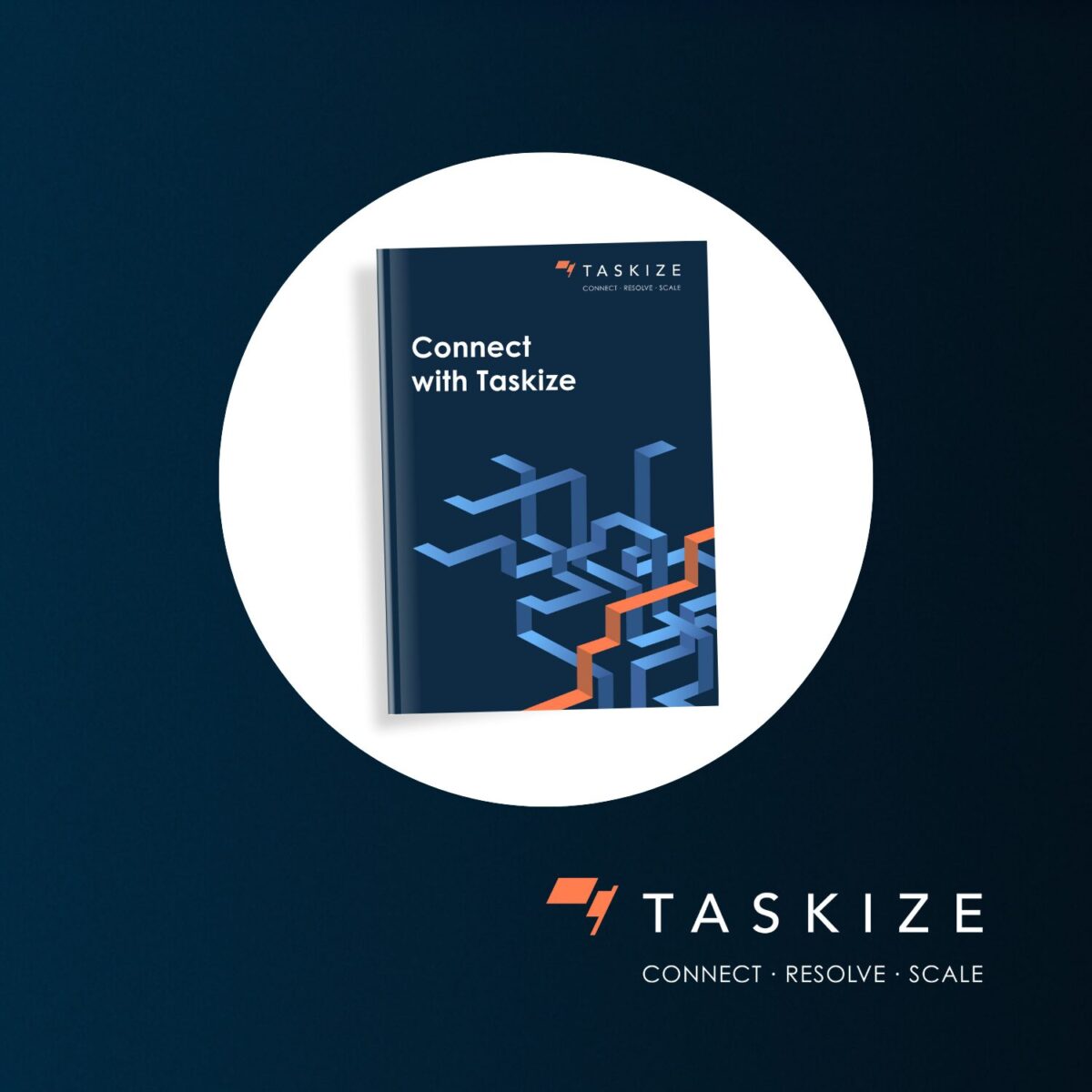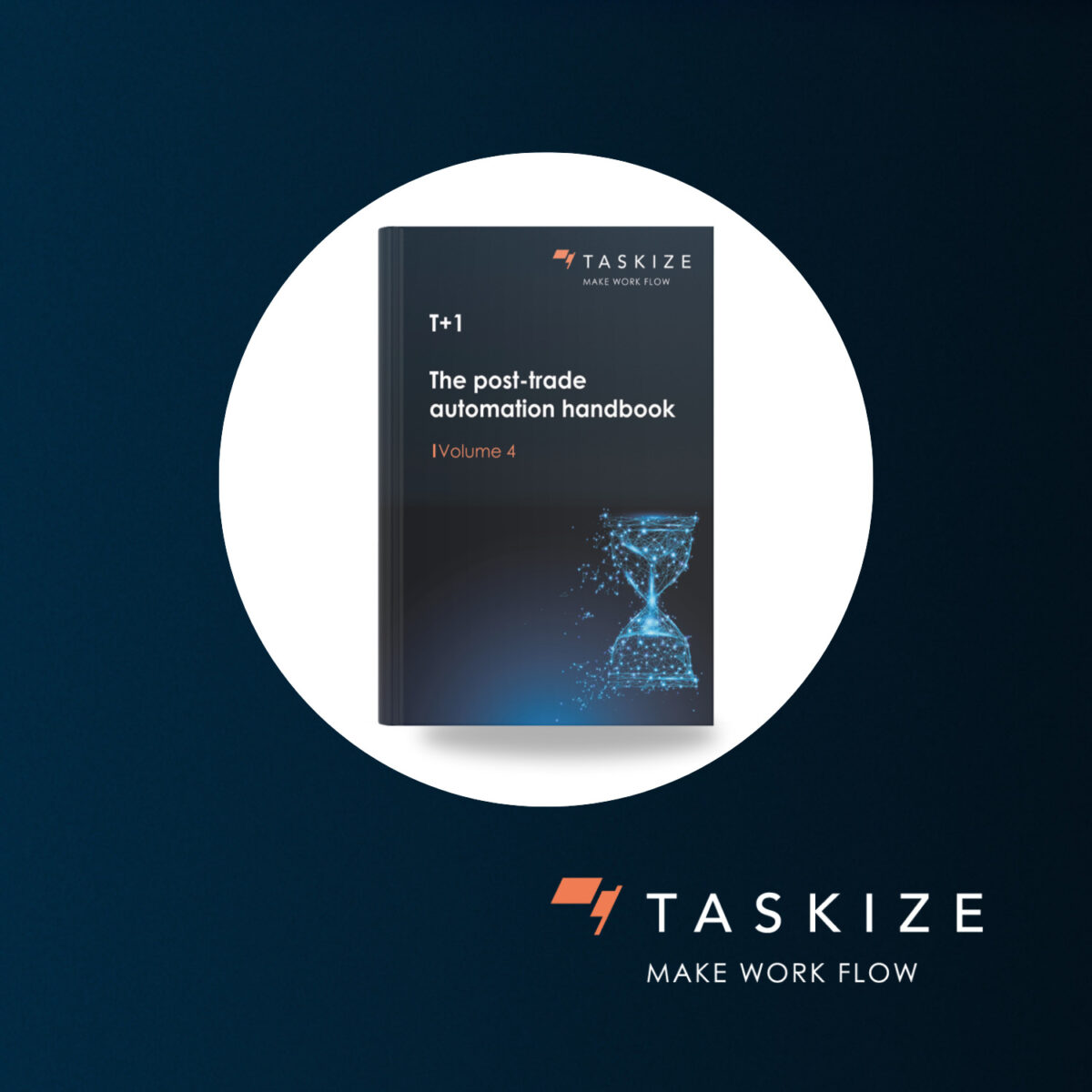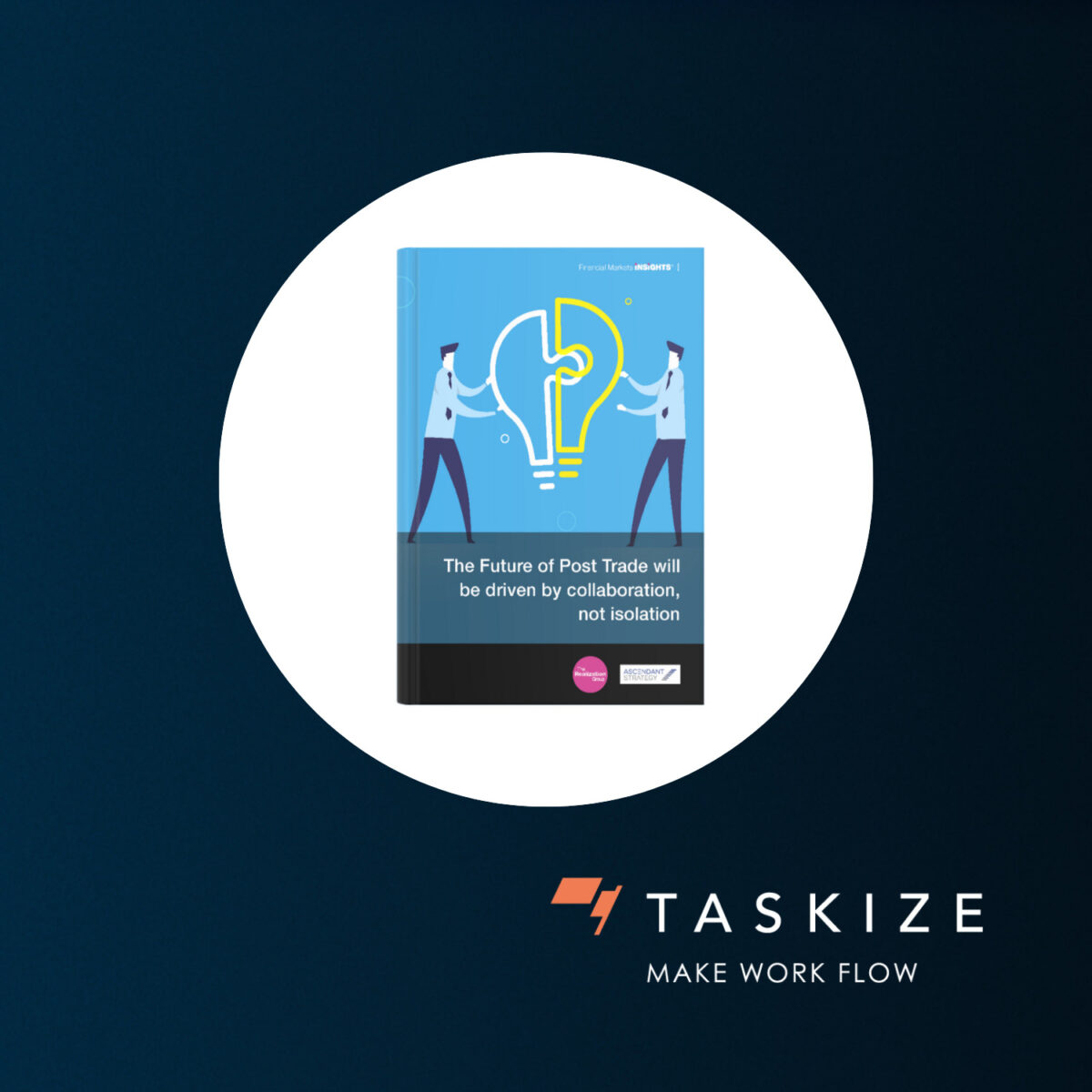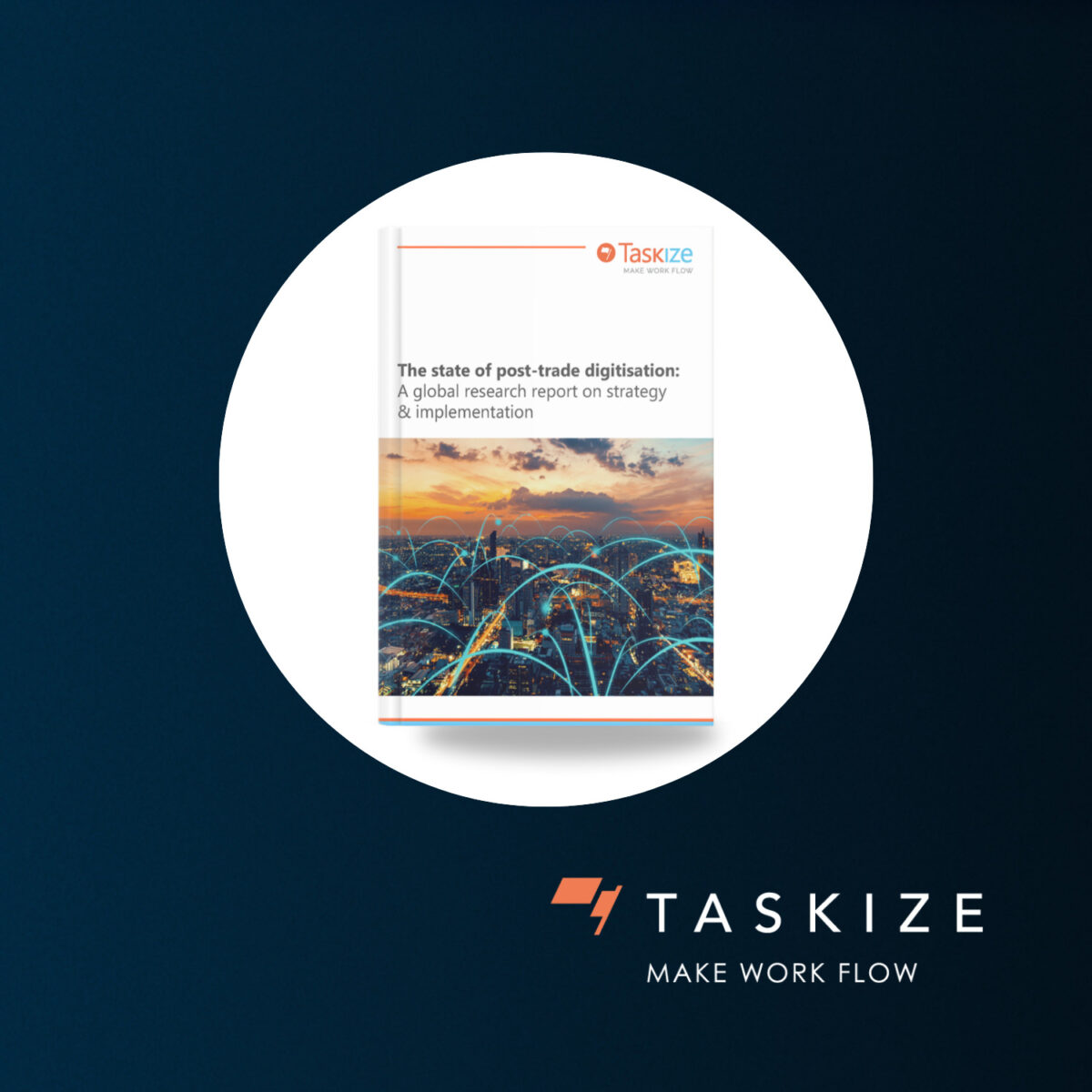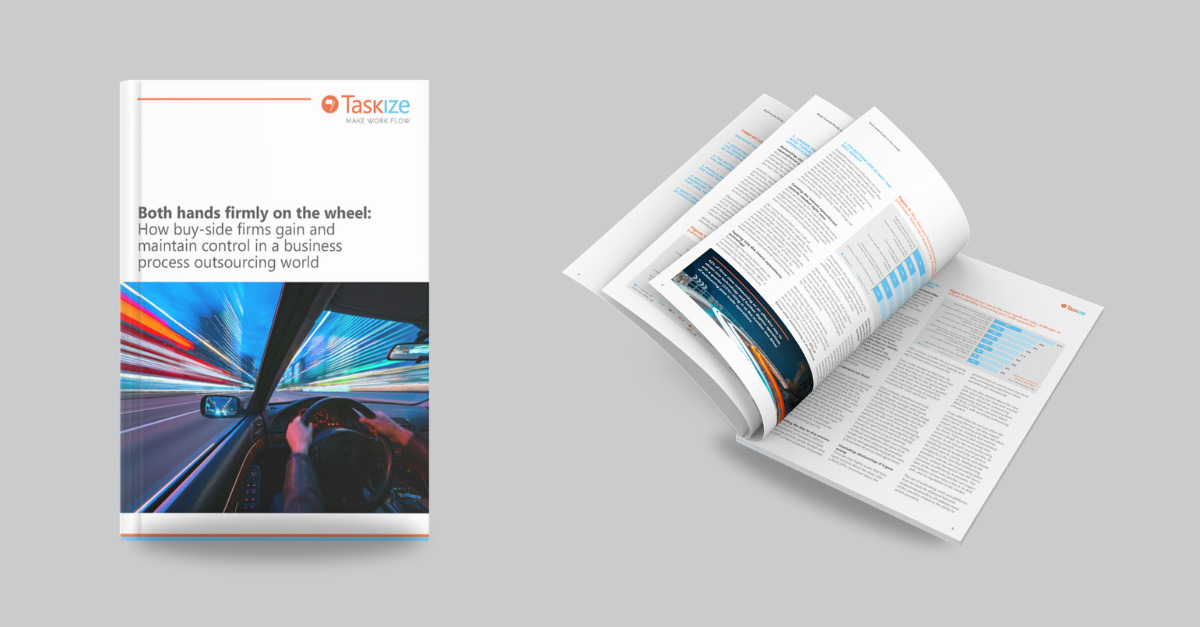
From exception handling to processing of corporate actions, which post-trade processes can and should be outsourced? And from regulatory compliance to staff efficiency, what are the KPIs for outsourced post-trade processes and how are they best managed?
One hundred senior executives and decision-makers in buy-side firms were surveyed for this report. And only those that outsource or are considering outsourcing any part of their post-trade processes.
Communications optimisation:
- Email — found by our survey to be sub-optimal for post-trade operations
- 100% — of the firms surveyed have experienced problems with email
- Alternatives — we explore the alternatives and options available
Based on industry research and peer review, we spoke to firms with at least AUM USD100m across the following geographies:
- Asia (Australia, Singapore, Hong Kong)
- Europe (UK, Germany, France, Belgium, Switzerland)
- North America (US, Canada)
Complete the form to download now:
